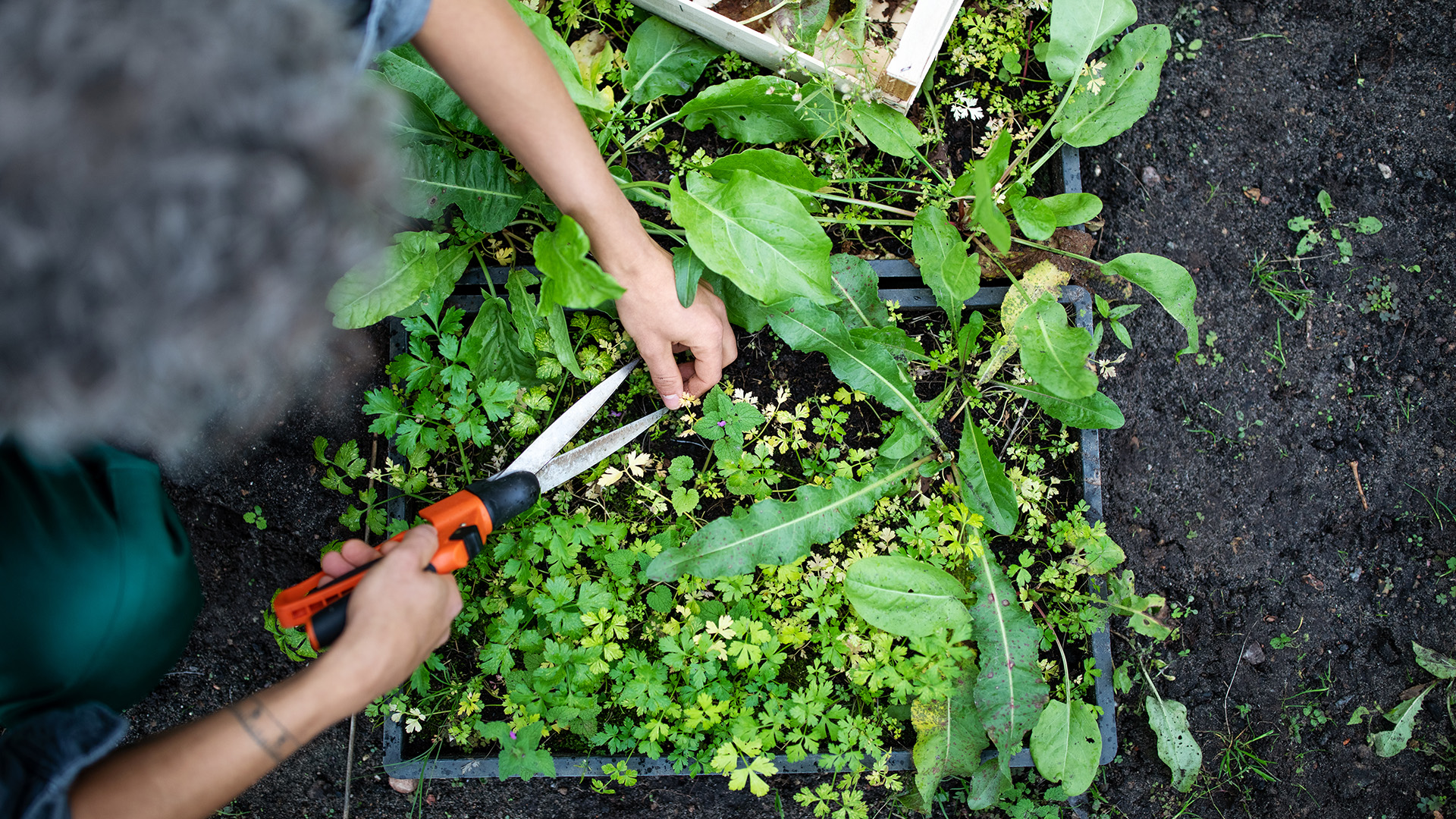Can you use vinegar as weed killer?
Wondering whether you use vinegar as weed killer to get rid of unwanted weeds in your yard? We've got the answer here.

Sign up to receive the latest news, reviews, buying guides and deals direct to your inbox
You are now subscribed
Your newsletter sign-up was successful
Keeping on top of weeds in your yard can be one of the most frustrating aspects of gardening, so you might be wondering whether you can use vinegar as weed killer. There are many ways to eradicate weeds from your outdoor space and vinegar is just one option.
Whether your backyard is bountiful with flower beds and shrubs, or it's simply a functional stretch of lawn to entertain your pets and kids, keeping it weed-free is a keen priority for most of us. Finding a chemical-free way to do this is also increasingly important for many people, whether that's through using one of the best electric weed eaters or through a natural remedy such as vinegar.
So, can you use vinegar as weed killer? We'll be examining how effective it is, how you can make your own weed killer with vinegar and whether it's the best solution for you and your yard.
Can you use vinegar as weed killer?
If you're an organic gardener or you have pets or children, you might be looking for chemical-free alternatives for getting rid of weeds in your backyard. So, can vinegar be a good option?
It is true that vinegar can act as a natural weed killer, thanks to the acetic acid it contains. However, the type of vinegar we keep in our food cupboards doesn't necessarily have a high enough percentage of acetic acid to make it effective in killing weeds, though it may be worth a try on small and young weed plants.
It is possible to buy horticultural products containing more acetic acid (around 20-30%). You’ll usually find these in a home improvement or garden supply store. But these products should be used with extreme caution.
How to use vinegar as weed killer
Step 1
Sign up to receive the latest news, reviews, buying guides and deals direct to your inbox
Choose a hot, sunny day to spray your vinegar weed killer as the acetic acid dries out the weed’s leaves, so with heat encouraging the drying out process it will be more effective. Avoid windy days, as you will not be able to control where the spray goes.
Step 2
Firstly, you will need white vinegar. This is probably the cheapest option, though you could use apple cider vinegar if you have it. It should have a 5% concentration of acetic acid - you’ll probably want a gallon container to tackle the average backyard.
Step 3
To help the vinegar stick to the weeds, mix in about two teaspoons of dish soap. To increase its efficacy you can also mix in a cup or two of salt, as this also helps to dry out the weeds, However, be aware that a build up of salt in the soil could affect plant growth, so this is not something you would want to do regularly.
Step 4
Decant the mixture into a spray bottle or garden sprayer. Spray onto the offending weeds. However, you'll need to be careful that you don’t spray it onto the plants you want to keep! It is best used in areas where weeds are coming up through paving or gravel, where you don’t need to worry about other plants. If it is impossible to spray without affecting your plants or lawn, you could choose to paint the mixture on the weeds using a brush.
Step 5
Any remaining mixture can be washed down the sink, and the spray bottle washed out well. Do not empty into ponds or waterways.
Step 6
If it rains after you have sprayed your vinegar weed killer, you will probably have to repeat the process. You can check the weeds the following day and see how effective the spray has been. If it has not worked, or not worked very effectively, try another round of spraying. After a day or two you should be able to pluck out the dead/dying weeds from the ground easily. You should not repeat the process for another two weeks.
Step 7
For stubborn perennial weeds, you may choose to use horticultural vinegar, which has a 20% concentration of acetic acid. This will need watering down according to the instructions on the pack and should be handled with extreme caution. Wear gloves and goggles, do not allow it to touch your skin, or get near your eyes, and do not inhale the fumes. Dispose of horticultural vinegar according to the manufacturer’s instructions.
Should you use vinegar as a weed killer?
Vinegar can be a great way to kill weeds, but some experts actually advise against it, including landscaper Fiona Jenkins. She says: “In the strong concentrations used for weeding, vinegar can lead to environmental damage. Because it is a contact herbicide it can kill everything it touches within hours or days - and the weeds are likely to re–sprout from the roots after a few weeks, anyway.’’
Landscaper Fiona Jenkins says, “High concentrations of acetic acid (found in vinegar) can cause a great deal of environmental damage. For example, when animals or living creatures use the weeds as shelter. With this in mind, it's always better to opt for a hand cultivator rather than a herbicide spray, especially for established weeds.’’
She adds that because vinegar is often only partially successful, gardeners will then choose the stronger horticultural vinegar, but warns: “The higher the concentration of the vinegar, the more dangerous it is.’’
Any concentration over 11% can, she says “ burn your skin and cause damage to your eyes’’. What's more, anything over 20% can be corrosive tin, iron, concrete, and aluminum and even cause blindness. “When applying these types of herbicides, it's extremely important to wear protective clothing and eye goggles,’’ Fiona adds.
Fiona suggests looking at eco-friendly weed killers on the market that are safe for use, though cautions that these may not be effective on well-established weeds or high volumes of weeds.
She suggests instead that gardeners use “preventative mulches, well-timed cultivation, and hand-weeding’’.
Discover more guides for the garden…
Best gas lawn mower
Best riding lawn mower
Best robot lawn mower
Best electric lawn mower

Naomi MacKay, a seasoned freelance writer and editor, boasts two decades of experience in gardening and yard care. She's proficient in reviewing various products and has covered numerous gardens and garden shows in the UK, including the renowned RHS Chelsea Flower Show. Additionally, she's working on a book about historic UK gardens.
